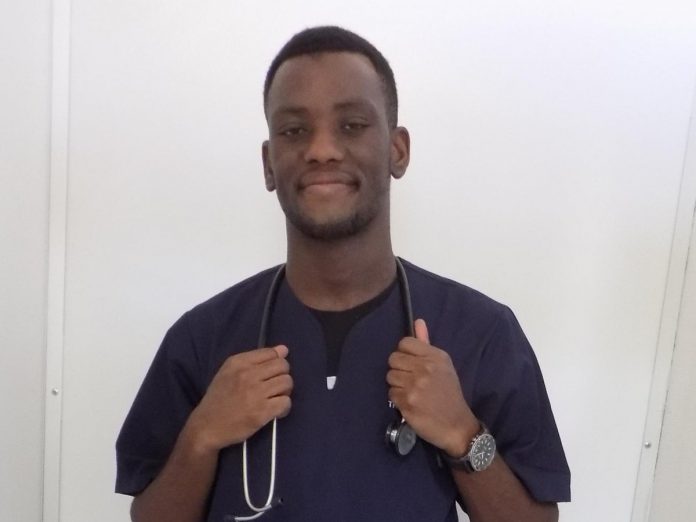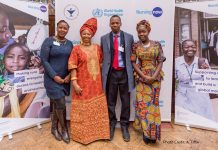
Munashe Nykia is a registered nurse in Harare, Zimbabwe. He also serves as a Global Young Nurse Representative on the board for the Nursing Now Campaign which is run in association with the International Council of Nurses with support from the World Health Organization. A presenter at the recent HRH2030 World Health Worker Week Health Sector event, he shares his thoughts in this guest blog on the need for greater investments in nursing.
From a young age, I knew I wanted to pursue a career in health. Growing up, I was struck by the glaring health inequalities within my community—how the poorest were the ones most prone to get sick, their poor health stopping them from thriving. Seeing family and my community ill, wanting to help but not knowing how or what to do, drove me to seek a career in healthcare. Today I am a registered nurse.
I became a nurse to merge my passion for health and development, and to support my community. I work at a local clinic in my community in Harare, Zimbabwe, where I care for people living with cancer. At the clinic we provide treatment, share health education, and conduct health promotion activities. I feel privileged to be a nurse at this facility, as I am able to support patients living with cancer for the duration of their treatment.
I have the pleasure of working with amazing colleagues who touch lives everyday, and are changing the face of health within our community. I am inspired by my colleagues at the clinic, but also by nurses and healthcare professionals around the world who work tirelessly to improve health and ensure access to quality healthcare for all. It feels good contributing to saving lives and being a champion for my community, but we have a mammoth challenge on our hands to ensure that healthcare is universally available to all.
On International Nurses’ Day, I want to call for a fairer and healthier world. As a young, African health professional, I have committed to serve people to the best of my ability. I have a great responsibility ahead of me and today, I appeal to policy makers, their partners, and health stakeholders across the world to support me and my colleagues to make a positive difference in the lives of our communities, to make health accessible for all.
The global disease burden is growing rapidly, and we are not equipped to deal with what is to come. In fact, the world faces a shortfall of 18 million health workers by 2030. Half of this shortfall is expected to be of nurses and midwives.
In order to care for people, we must invest in people. We need more health workers to deliver care in order to ensure access to health for all. Furthermore, we need more nurses in positions of leadership to support our cause and promote positive changes within global healthcare policy.
Nurses work across different settings and at different levels of healthcare. As a young nurse, I have used the position I have to advocate for health for my community. I have seen how, in spite of the valuable role of nurses in society, they are all too often undervalued and unable to use their knowledge and expertise to its full potential. It is crucial that policy makers work with nurses to deliver the best care we can for our communities.
The Nursing Now Campaign is a global movement that seeks to improve health and ensure access to health for all by raising the status and profile of nurses worldwide. The campaign launched in February 2018 and since then, nurses from across the globe have made a stand for health and joined forces to demand a greater voice in health decision-making.
Today we celebrate nurses and the nursing profession, but we must also call for more nurses in senior leadership positions and support employers to improve access to training and leadership education in order to create a fairer, healthier world.
Photo: Munashe Nykia is a registered nurse in Harare, Zimbabwe. He stands ready to serve at his community’s local clinic. Munashe is also taking a stand for health and has joined with other nurses to demand a greater voice in health decision-making.
(This blog originally appeared on the HRH2030 website)




